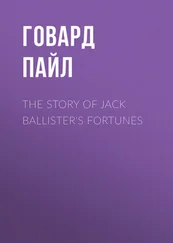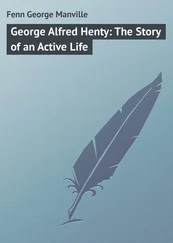Ulrich Frank - Simon Eichelkatz; The Patriarch. Two Stories of Jewish Life
Здесь есть возможность читать онлайн «Ulrich Frank - Simon Eichelkatz; The Patriarch. Two Stories of Jewish Life» — ознакомительный отрывок электронной книги совершенно бесплатно, а после прочтения отрывка купить полную версию. В некоторых случаях можно слушать аудио, скачать через торрент в формате fb2 и присутствует краткое содержание. Жанр: foreign_antique, foreign_prose, на английском языке. Описание произведения, (предисловие) а так же отзывы посетителей доступны на портале библиотеки ЛибКат.
- Название:Simon Eichelkatz; The Patriarch. Two Stories of Jewish Life
- Автор:
- Жанр:
- Год:неизвестен
- ISBN:нет данных
- Рейтинг книги:4 / 5. Голосов: 1
-
Избранное:Добавить в избранное
- Отзывы:
-
Ваша оценка:
- 80
- 1
- 2
- 3
- 4
- 5
Simon Eichelkatz; The Patriarch. Two Stories of Jewish Life: краткое содержание, описание и аннотация
Предлагаем к чтению аннотацию, описание, краткое содержание или предисловие (зависит от того, что написал сам автор книги «Simon Eichelkatz; The Patriarch. Two Stories of Jewish Life»). Если вы не нашли необходимую информацию о книге — напишите в комментариях, мы постараемся отыскать её.
Simon Eichelkatz; The Patriarch. Two Stories of Jewish Life — читать онлайн ознакомительный отрывок
Ниже представлен текст книги, разбитый по страницам. Система сохранения места последней прочитанной страницы, позволяет с удобством читать онлайн бесплатно книгу «Simon Eichelkatz; The Patriarch. Two Stories of Jewish Life», без необходимости каждый раз заново искать на чём Вы остановились. Поставьте закладку, и сможете в любой момент перейти на страницу, на которой закончили чтение.
Интервал:
Закладка:
This world that has sunk into the past stirs my imagination, and I take deep interest in the figures that glided through the narrow streets fifty years ago. What constituted incidents in this world, what occupied these men, how they lived, loved, and hated – all this has a certain historic charm for me, heightened on account of my racial bias.
Yesterday Simon Eichelkatz promised to tell me all sorts of things during the fall and winter. I wonder whether I shouldn't wait a little while before I present my visiting cards. When once you begin, there are invitations and social obligations from which you cannot withdraw – and then there would be an end to the long talks with Simon. And I must carefully consider whether I am likely to laugh so heartily in the "æsthetic salons " of the fine Jewish houses as I did yesterday, when Simon told me the story of Teacher Sandberg. Scarcely! The young ladies would undoubtedly find the affair "shocking." But I want to record it here, and I will call it "The Adventure of Teacher Sandberg."
It was on the hottest and longest of Jewish fast days, Shivoh oser be-Tamuz . The sun glared down pitilessly. Not a breath of air to freshen, to quicken the heavy atmosphere. The Khille began the "three weeks" with a full fast day, on which the faithful partook neither of meat nor drink. The male members of the congregation strictly observed the customs, although to be pious was especially hard on this day in midsummer, when daylight continues endlessly. The length of the fast has become a byword, and a very tall man is said "to be as long as Shivoh oser be-Tamuz." But neither heat nor length prevented the faithful from keeping the fast recalling the destruction of the sanctuary on Zion. And so the congregation made itself penitential; it fasted, prayed, perspired, groaned, and denied itself every refreshment. The people crawled into the shadow of the houses to escape the heat and the tormenting thirst it caused. In vain! The awful sultriness penetrated everywhere, and brooded over the streets and dwellings, over field and meadow. The fasting men endured it with a certain apathy – after all, they were used to it; it repeated itself every year, and no one could remember that Shivoh oser be-Tamuz had ever fallen on a cool day. It couldn't be otherwise – in midsummer, the season of ripening fruits, of the harvest. You just had to accept the situation, and, in addition to the tortures of hunger and thirst, suffer those of heat as well. But on Shivoh oser be-Tamuz in 1853 a great fright came to swell the list of agonies in the Khille at Reissnitz.
Toward noon the report spread that the teacher Sandberg was missing. He had been seen in Shul at the morning service, and from there he had gone home, but after that he could not be traced further. Two boys who had been playing "cat" that morning in the street, declared they had seen him in front of his house, and then had noticed him go around the corner along the street leading to the so-called "Behnisch" meadows. That was the last that could be found out about Teacher Sandberg.
According to Simon Eichelkatz's description, he was a most singular individual. Extremely tall, and thin as a broom-stick, with a peculiar gait, rather pushing and scraping himself along the ground than walking. Summer and winter he wore a black silk cloth about his neck, above which showed only a very narrow line of white. His head was usually inclined to the left side in talking, and his whole face was cast into shadow by his large, beaked nose, ugly beyond belief. This nose of his was the butt of his pupils, the alphabet class of the congregational school. Sometimes it was a cause of terror to them as well, especially to the new pupils, who always needed some time to grow accustomed to it. But that happened as soon as Teacher Sandberg looked at them with his good-humored eyes, often gleaming with gayety, which allayed the fright produced by the uglier organ. In fact, it was the eloquence of his eyes that made the teacher a general favorite. Everyone liked the odd fellow; and from many a shop and window, sympathetic glances followed his figure as, with hands in his trouser pockets, he slouched along to school. One can therefore imagine the amazement caused by the news of his disappearance. Inquiry was made for him in the houses of neighboring families, the synagogue yard was searched, – perhaps he had taken refuge there from the heat, – every nook and cranny of his house, including the shop and cellar, were carefully investigated, the absurdest surmises as to his whereabouts were set afloat. Was he in some saloon? Impossible, on this fast day! His wife cried and sobbed, his children bawled – her husband, their father – where was he? Gone! As if swallowed by an earthquake! Not a single clue as to where he had disappeared. Some of the people, his weeping wife at their head, went to the "Behnisch" meadows. But he was not there; nor had he been seen by the harvesters taking their midday rest on the fresh stacks of hay. And why should he be there, in the maddening heat of high noon, hungry and thirsty from his fast? The mystery remained unsolved and began to assume a more and more terrifying aspect. What had driven him from his room? Whither had he wandered? Soon the word "accident" was anxiously whispered from mouth to mouth. But what could the nature of the accident be? In awe-stricken tones they hinted at murder! Suicide! God forbid that such suppositions should reach the ears of the wife and children! Crowds gathered in the White Suburb. They looked up and down the Gass, they glanced at the windows of Teacher Sandberg's house; they questioned one another, they propounded all sorts of theories, they debated and took counsel – Teacher Sandberg remained in the land of the unknown.
All forgot hunger and thirst, no one remembered that he was mortifying his flesh. What signifies so slight a sacrifice as compared with the awful fate that had befallen Teacher Sandberg? Fear and pity crept over the spirits of the people. What had happened? All the inhabitants of the city joined in the hunt with the relatives and co-religionists of the lost man. The whole little world was up and doing, excited, amazed, searching – and still Teacher Sandberg remained in the land of the unknown.
At two in the afternoon the rumor had spread from the White Suburb to the Ring, and penetrated into the quiet study of the rabbi. He immediately hurried to Teacher Sandberg's home, accompanied by the president, Herr Manasse, and the chairman of the board, Herr Karfunkelstein. He was also joined by all the other men in the congregation, by many women and children; and all streamed to the place excited and terrified, to get news of Teacher Sandberg's fate. The crowd in front of the unfortunate man's house was now so great that even the highly respected police also repaired thither; now all the citizens had assembled, and they talked with bated breath of the "unheard-of case." The rabbi and the president went inside the house to get the details again from the wife. The crowd waited outside expectantly. The rays of the midday sun beat down mercilessly. But no one thought of heat, hunger, or thirst. Everyone was occupied with Teacher Sandberg alone.
"Sandberg had to choose exactly Shivoh oser be-Tamuz to get lost on," said little Freund, the dealer in smoked meats. "He himself is as long as Shivoh oser be-Tamuz, and he had to have a misfortune just on the fast day."
"Just as if you were to put a fur coat on in this heat," said another man.
"No jokes," warned a third; "it's a sad business."
At that moment a man pushed his way through the crowd, breathless, gasping, in the greatest excitement. He was carrying a bag in which something swayed back and forth. The people looked at him with horror on their faces, and made way for him, carefully avoiding contact with the sack.
Читать дальшеИнтервал:
Закладка:
Похожие книги на «Simon Eichelkatz; The Patriarch. Two Stories of Jewish Life»
Представляем Вашему вниманию похожие книги на «Simon Eichelkatz; The Patriarch. Two Stories of Jewish Life» списком для выбора. Мы отобрали схожую по названию и смыслу литературу в надежде предоставить читателям больше вариантов отыскать новые, интересные, ещё непрочитанные произведения.
Обсуждение, отзывы о книге «Simon Eichelkatz; The Patriarch. Two Stories of Jewish Life» и просто собственные мнения читателей. Оставьте ваши комментарии, напишите, что Вы думаете о произведении, его смысле или главных героях. Укажите что конкретно понравилось, а что нет, и почему Вы так считаете.












